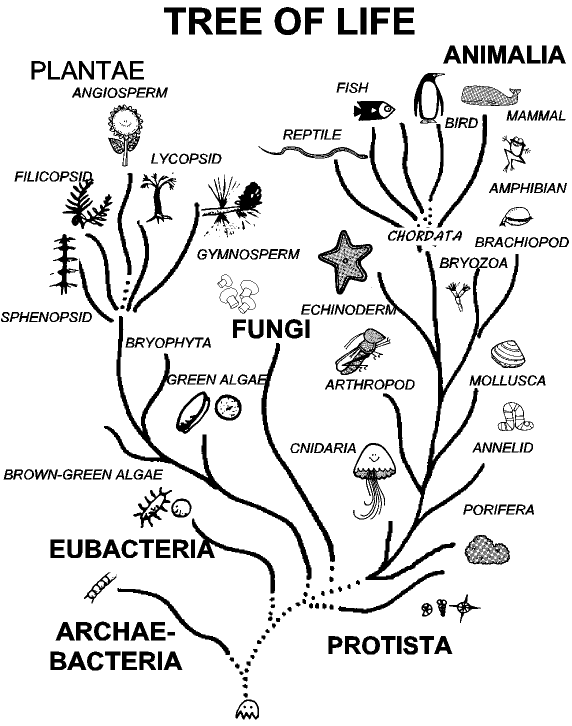I'm not. For me personally it is 99% about not harming sentient beings. Plants are not sentient beings. I kill them and eat them routinely, as do you (assuming you aren't a fruitarian). I get your point that animal food wastes more plant life than killing just plants as a direct food though.
------------------------------------------------------------
Porifera (sponges) were the first multi cell animals and if you believe in evolution (and the current DNA evidence supports a single common ancestor to all animal life, according to that previous link I gave) then this is our family tree:
Notice all life is descended from the evil, gobble-you-up character from Ms Pacman^






 Reply With Quote
Reply With Quote
 ).
). from the exposure to the acid. Does this prove the baking soda has feelings and thoughts? Reaction and motion do not prove thought.
from the exposure to the acid. Does this prove the baking soda has feelings and thoughts? Reaction and motion do not prove thought.
 ]
]

 Internet research mostly indicates that they do not think or feel pain, but I don't trust the sources I've found that say that. I need to find a biologist or something....
Internet research mostly indicates that they do not think or feel pain, but I don't trust the sources I've found that say that. I need to find a biologist or something....









Bookmarks